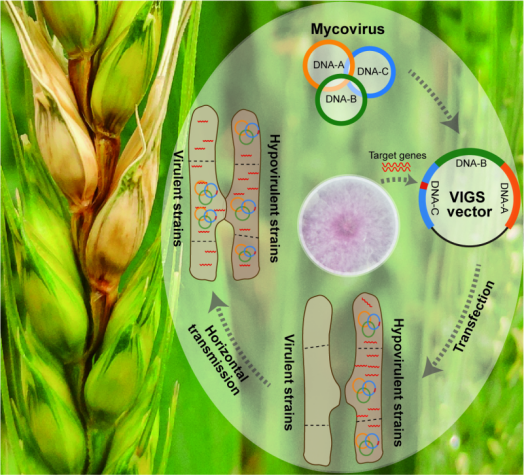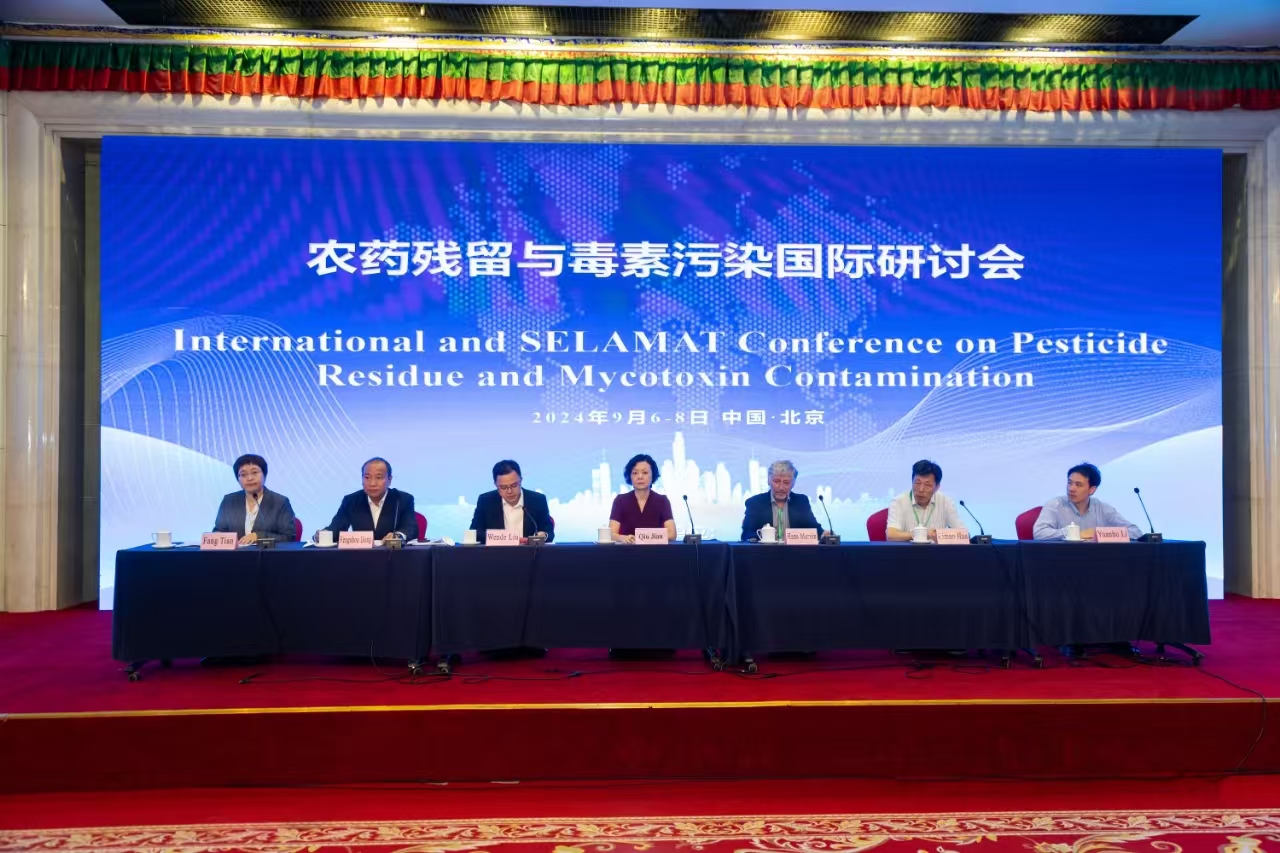A mycovirus VIGS vector confers hypovirulence to a plant pathogenic fungus to control wheat FHB
Recently, the Innovation Team for Surveillance and Control of Crop Virus Diseases in the Institute of Plant Protection, the Chinese Academy of Agricultural Sciences has successfully developed the first fungal virus-induced gene silencing (VIGS) system. This study further expanded the application of the VIGS system and obtained multiple hypovirulent strains of Fusarium graminearum that can effectively control Fusarium head blight (FHB) of wheat. The research results provide a new strategy, technology, and resource for the control of fungal diseases. The research was published in Advanced Science.
FHB caused by F. graminearum is a worldwide wheat disease, which is a serious threat to food safety and human health. In this study, the VIGS vector p26-D4 of Fusarium graminearum gemytripvirus 1 (FgGMTV1), a tripartite circular single-stranded DNA mycovirus, was successfully constructed to convert the causal fungus of cereal FHB into a hypovirulent strain. p26-D4, with an insert of a 75-150 bp fragment of the target reporter transgene transcript in both sense and antisense orientations, efficiently triggered gene silencing in F. graminearum. Notably, the two hypovirulent strains, p26-D4-Tri101 and p26-D4-FgPP1, obtained by silencing the virulence-related genes Tri101 and FgPP1 with p26-D4, could be used as biocontrol agents to protect wheat from a fungal disease FHB and mycotoxin contamination at the field level. This study not only describes the first mycovirus-derived VIGS system but also proves that the VIGS vector could be used to establish multiple hypovirulent strains to control pathogenic fungi.
This study was supported by National Natural Science Foundation of China and the National Key R&D Program.
Researcher Lihua Guo, Institute of Plant Protection, Chinese Academy of Agricultural Sciences, is the corresponding author of the paper. PhD student Lihang Zhang and associate researcher Shuangchao Wang are co-first authors of the paper. Graduate student Shaojian Ruan, PhD students Clement Nzabanita and Yanfei Wang also participated in the related work.
http://doi.org/10.1002/advs.202302606

-
 China-Laos Training Workshop on Integrated Management of Destructive Crop Pests and Diseases Successfully held in Laos
China-Laos Training Workshop on Integrated Management of Destructive Crop Pests and Diseases Successfully held in Laos -
 New Plant Protection: New challenge and new opportunity for plant protection
New Plant Protection: New challenge and new opportunity for plant protection -
 International and SELAMAT Conference on Pesticide Residue and Mycotoxin Contamination Held in Beijing
International and SELAMAT Conference on Pesticide Residue and Mycotoxin Contamination Held in Beijing -
 CAAS President Meets Chairman of ASEAN FAW Taskforce
CAAS President Meets Chairman of ASEAN FAW Taskforce
